French Ingredient
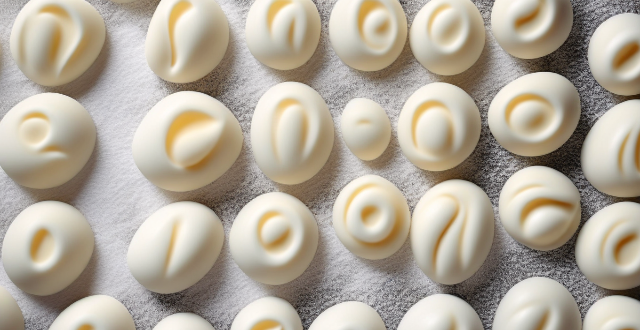
What are some unique ingredients commonly used in French desserts ?
French desserts are renowned for their exquisite taste and delicate textures, which are largely due to the unique ingredients used in their preparation. These include vanilla beans, almond meal, cream, butter, lemon zest, and kirsch. Each ingredient plays a crucial role in enhancing the flavor, aroma, and texture of French desserts. Understanding the importance and usage of these ingredients can help you appreciate the artistry behind French pastry making and even try your hand at creating your own delectable treats.

What kind of chocolate is typically used in French chocolate desserts ?
The article discusses the importance of chocolate selection in French chocolate desserts, highlighting the use of dark, milk, white, and unsweetened chocolate. It emphasizes the rich culinary heritage of France that demands quality ingredients, especially in chocolate desserts. The article also suggests considering the desired outcome of the dish, taste testing, and experimentation to find the perfect chocolate for a particular dessert.

Are there any healthy French dessert options ?
The article discusses the various healthy options for French desserts. It mentions fruit-based desserts like Tarte Tatin and Clafoutis, which use fresh fruits as the main ingredient, providing natural sweetness and fiber. It also suggests using whole wheat flour or almond flour to make these desserts healthier. The article further introduces nut-based desserts such as flourless chocolate cake and walnut and almond cake, which are low in carbohydrates and high in healthy fats and protein. Finally, it concludes that there are many healthy French dessert options available that allow you to indulge in something sweet without compromising your health goals.

Where can I find the best French patisserie in Paris ?
Paris is renowned for its delectable pastries and desserts, and finding the best French patisserie can be a delightful adventure. Some of the top recommendations include Angelina, Ladurée, Pierre Hermé, Du Pain et des Idées, Pâtisserie Ciel, Gerard Mulot, Arnaud Larher, Carl Marletti, Patrick Roger, Hugo & Victor, L'Éclair de Génie, Le Moulin de la Vierge, Gosselin, and Au P'tit Suisse. Each offers their own unique twist on the classic French pastry, from traditional macarons to modern flavor combinations.
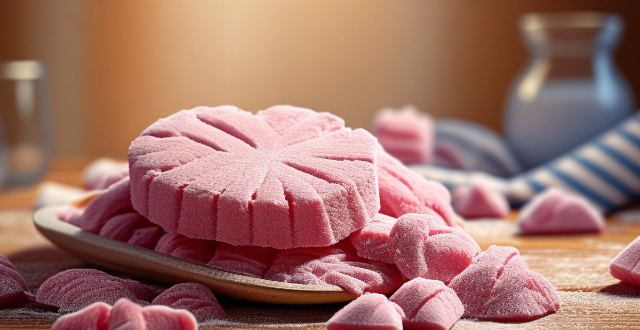
What makes macarons a quintessential French sweet treat ?
Macarons are a quintessential French sweet treat due to their origins, precise recipe requirements, variety, elegance, and cultural significance. They were perfected by the French in the mid-19th century and have become a staple in French patisseries. Despite the simplicity of the ingredients, making macarons requires precision and skill, which is emblematic of French culinary traditions. Macarons come in a wide range of colors and flavors, allowing for creativity and customization. Their small size and elegant appearance make them perfect for an afternoon tea or a light dessert. In France, baking is considered an art form, and the craft of making macarons is no exception. They are often given as gifts during special occasions, reflecting the French tradition of giving thoughtful, beautiful presents. Overall, macarons are not just a sweet treat but a representation of the beauty and refinement associated with French cuisine.

Why is French cuisine, including desserts, considered among the finest in the world ?
French cuisine, including desserts, is renowned worldwide for its exquisite flavors, meticulous preparation, and artistic presentation. This reputation is due to factors such as historical significance, quality ingredients, artisanal methods, chef training, innovation, and attention to detail. French cuisine has a long history dating back to medieval times when it was influenced by various cultural invasions and trades. Over centuries, French chefs refined their techniques, creating a rich culinary tradition that emphasizes depth of flavor and precision in cooking methods. French cuisine places a high value on using fresh, high-quality ingredients, often sourced locally. The variety of ingredients available in different regions of France allows for a wide array of dishes and flavors. French baking traditions, such as those used in making croissants and baguettes, involve complex processes that yield exceptional results. Many French desserts, like macarons and éclairs, are handcrafted with care, ensuring each piece is of the highest quality. France is home to some of the best culinary schools in the world, where future chefs receive rigorous training. Young chefs often learn from experienced masters through apprenticeships, preserving techniques and recipes. French chefs are known for their innovative approaches to traditional dishes, pushing the boundaries of gastronomy. The integration of international flavors into classic French dishes keeps the cuisine dynamic and exciting. French cuisine emphasizes not just taste but also the visual appeal of the dish, making every meal an experience. The emphasis on all senses—smell, sight, taste, touch, and even sound—creates a comprehensive dining experience.
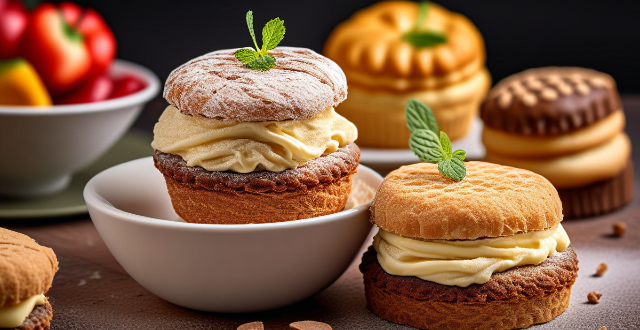
How do French desserts differ from American or British desserts ?
French desserts are known for their high-quality ingredients, precise techniques, and elegant presentation. Popular options include crème brûlée, macarons, and tarte tatin. In contrast, American and British desserts often use simpler ingredients and techniques, with a focus on convenience and taste over appearance. Popular choices include pies, brownies, and cheesecakes.

What are some traditional French desserts served during the Christmas holiday season ?
The Christmas holiday season in France is a time for indulgence, and what better way to indulge than with delicious desserts? Here are some traditional French desserts that are often served during the festive season: 1. Bûche de Noël (Yule Log) - A classic French Christmas dessert, this rolled sponge cake is filled with creamy chocolate buttercream and decorated to resemble a log. 2. Tarte de Pommes Caramélisées (Caramelized Apple Tart) - Thinly sliced apples are caramelized and arranged in a pastry shell, creating a smooth and rich custard filling. 3. Palets Breton (Breton Butter Biscuits) - Light and crispy butter biscuits from the Brittany region of France, often served alongside coffee or tea. 4. Macarons - Although not exclusively a Christmas dessert, macarons are a staple in French patisseries all year round. Festive flavors like gingerbread, peppermint, and chestnut make them perfect for the holiday season. 5. Buche de Châtaignes (Chestnut Log) - Similar to the Bûche de Noël, this chestnut-flavored sponge cake is rolled up with chestnut cream and decorated with marzipan to resemble a bark. 6. Oeillet Parfait (Parfait Pudding) - A light and airy pudding made with whipped cream and flavored with vanilla or other extracts, often served in individual glasses and topped with fresh fruit or berries. These traditional French desserts add a touch of elegance and sophistication to any Christmas celebration, satisfying every sweet tooth!

How do French pastry chefs achieve such delicate textures in their desserts ?
French pastry chefs are renowned for their ability to create desserts with exquisite textures that melt in your mouth. Achieving such delicate results involves a combination of precise techniques, high-quality ingredients, and meticulous attention to detail. Here's a breakdown of the key factors: 1. Mastery of Basic Techniques 2. Use of High-Quality Ingredients 3. Precision Cooking Methods 4. Creative Combinations 5. Attention to Detail

What is the history behind the French dessert, éclair ?
The éclair is a classic French dessert with a rich history dating back to the early 19th century. Originally known as "petites patisseries" or "small pastries," these early versions were made with a choux pastry shell filled with a sweet cream or custard filling. Over time, the recipe evolved and became more sophisticated, leading to the modern-day éclair with its iconic chocolate icing on top. As the popularity of the éclair grew, bakers began experimenting with different flavors and fillings, resulting in countless variations such as chocolate, coffee, pistachio, and strawberry éclairs. Today, the éclair remains a beloved dessert worldwide, enjoyed by people of all ages and cultures. Its enduring appeal and adaptability make it a true culinary masterpiece.

Can you suggest easy French dessert recipes for beginners ?
Easy French Dessert Recipes for Beginners French desserts are known for their elegance and flavor, but they can also be easy to make. Here are some simple French dessert recipes that even beginners can try: Tarte Tatin: - Ingredients: apples, sugar, butter, puff pastry - Steps: preheat oven, peel and core apples, melt butter and sprinkle sugar in skillet, cook apples until tender, caramelize syrup, roll out puff pastry, place over apples, bake until golden brown, cool and invert onto serving plate. Chocolate Mousse: - Ingredients: dark chocolate, eggs, sugar, heavy cream - Steps: melt chocolate, separate egg yolks and whites, beat yolks with sugar until pale and thick, beat whites until soft peaks form, fold melted chocolate into yolk mixture, fold in whites, whip cream until stiff peaks form, gently fold whipped cream into chocolate mixture, spoon into serving dishes and chill before serving. Crème Brûlée: - Ingredients: heavy cream, sugar (plus extra for topping), egg yolks, vanilla extract - Steps: preheat oven, heat cream and sugar until simmering, whisk egg yolks and sugar until combined, slowly pour hot cream into egg mixture while whisking constantly to prevent curdling, stir in vanilla extract, strain mixture through sieve into measuring cup or pitcher, pour into ramekins placed in baking dish with hot water halfway up sides of ramekins, bake until set but slightly jiggly in center, cool to room temperature then chill for at least 2 hours before serving; just before serving sprinkle each crème brûlée with thin layer of sugar and use kitchen torch to caramelize sugar until golden brown.
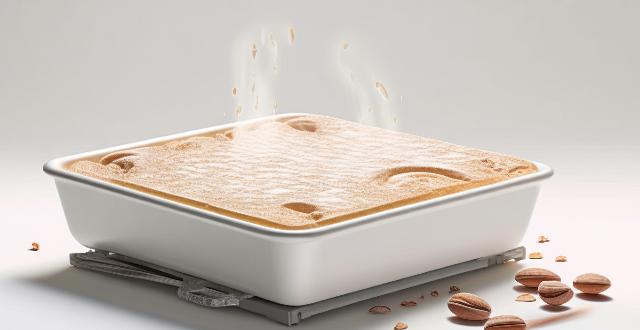
How do I make a classic French crème brûlée ?
Crème brûlée is a classic French dessert known for its rich, creamy custard and crackling caramelized sugar topping. Here are the steps to make it: Preheat the oven to 300°F (150°C), heat cream mixture with sugar and vanilla bean, whisk egg yolks with sugar, temper eggs with warm cream mixture, pour into ramekins, bake in a water bath until set but slightly jiggly, chill for at least 2 hours or overnight, caramelize sugar topping with a kitchen torch or broiler, and drizzle with caramel sauce (optional). Use high-quality ingredients for the best flavor, be patient when caramelizing sugar, and serve immediately after caramelizing for the best texture and taste.
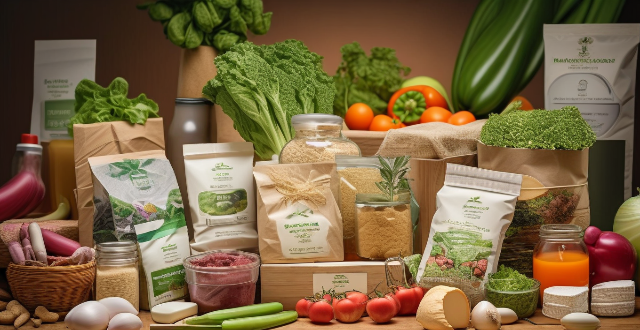
How do I know if a product is truly organic ?
Identifying truly organic products requires looking for certification labels, checking the ingredient list, researching the manufacturer or brand, and visiting farmers markets and local stores. Certification labels such as USDA Organic, Euro-leaf, and JAS indicate that the product meets specific standards for organic production. The ingredient list should indicate that all ingredients are organic and free from GMOs. Researching the manufacturer or brand can provide information about their farming practices and quality control processes. Visiting farmers markets and local stores allows you to ask questions about the products and see them firsthand. By following these tips, you can ensure that you are getting genuine organic products that are free from harmful chemicals and pesticides.

How do professional bartenders measure ingredients for consistency ?
Professional bartenders use a variety of tools and techniques to measure ingredients consistently. Accuracy is crucial for maintaining the same flavor profile and balancing different tastes in cocktails. Efficiency is also important, as it speeds up drink-making and allows bartenders to focus on customer interaction. Jiggers are commonly used tools for measuring both large and small quantities of liquids. Measuring spoons are used for smaller amounts like bitters or syrup. Digital scales are used for precise measurements by weight, especially for ingredients like fruit juices or syrups. Pour spouts and containers help control the flow of liquids to reduce spillage and waste. Standardization processes such as recipe cards, batching, and taste testing are also essential. Recipe cards include detailed measurements for each ingredient, helping new bartenders learn quickly and maintain consistency. Batching involves pre-mixing a large volume of a single cocktail ingredient or an entire recipe, saving time during busy shifts and ensuring uniformity. Taste tests are crucial even with precise measurements, as bartenders adjust recipes based on customer feedback and ingredient freshness. In conclusion, professional bartenders rely on a combination of tools, techniques, and standardized processes to measure ingredients consistently. This ensures that they can replicate the perfect cocktail every time, providing a high-quality experience for their customers.
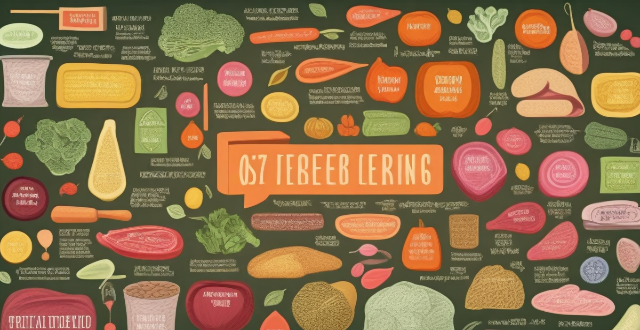
How does food labeling contribute to food safety ?
Food labeling is crucial for food safety as it provides consumers with essential information. It includes ingredient lists, nutritional information, expiration dates, manufacturing details, storage instructions, certification marks, allergy warnings, country of origin, precautionary statements, and environmental impact information. Proper labeling practices help identify ingredients, understand nutritional values, recognize potential risks, and make informed decisions about food consumption.
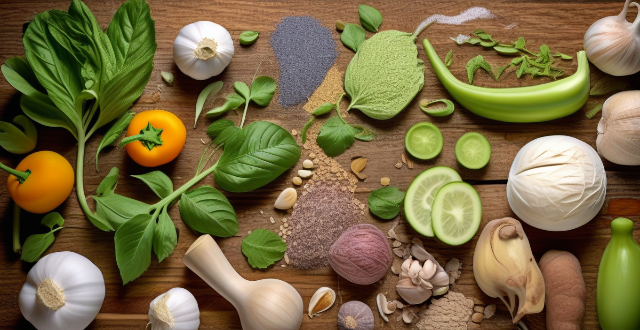
What ingredients are commonly used in Mexican cooking to create its unique flavor profile ?
The article provides an overview of the key ingredients used in Mexican cooking, including chili peppers like ancho, jalapeño, serrano, and habanero; herbs and spices such as cumin, coriander, oregano, and cilantro; and other ingredients like tomatoes, onions, garlic, lime juice, epazote, and hominy. It explains how these ingredients contribute to the distinctive flavor profile of Mexican cuisine and encourages readers to experiment with creating authentic Mexican meals at home.
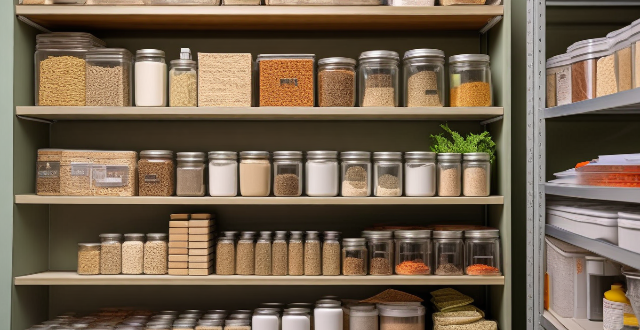
How long do homemade natural cleaners typically last before they lose their potency ?
Homemade natural cleaners' shelf life depends on factors like ingredients, storage, and concentration. To extend their lifespan, use high-quality ingredients, store properly, label with dates, avoid cross-contamination, and consider adding natural preservatives.

What are some tips for beginners in baking ?
Baking is a rewarding hobby that can bring joy and delicious treats to your life. Here are some tips to help beginners get started: 1. Read the recipe thoroughly before starting. 2. Use the right ingredients, fresh and as specified in the recipe. 3. Prep your ingredients beforehand. 4. Follow the recipe steps carefully. 5. Practice patience during the baking process. 6. Learn from your mistakes and keep practicing.

What are the key differences between classic and modern cocktail styles ?
Cocktail styles have evolved over time, with classic cocktails representing traditional recipes and techniques, while modern cocktails often showcase innovative ingredients and presentation methods. Classic cocktails are known for their simplicity, limited ingredient list, standard measurements, traditional garnishes, and historical significance. Examples include the Martini, Old Fashioned, and Daiquiri. Modern cocktails, on the other hand, feature innovation, complexity, craft methods, visual appeal, and locally sourced ingredients. Examples include the Earl Grey MarTEAni, Smoked Old Fashioned, and Lavender Lemon Drop. In summary, classic cocktails pay homage to the roots of mixology, while modern cocktails celebrate creativity and the ongoing evolution of the craft. Both styles offer a unique drinking experience and cater to different preferences among cocktail enthusiasts.

What are some common mistakes people make when baking cookies ?
Baking cookies is a beloved pastime for many, but it can also be fraught with pitfalls. Here are some common mistakes people make when baking cookies: Not measuring ingredients accurately using volume measurements instead of weight, incorrect use of measuring tools, not sifting dry ingredients, overmixing or undermixing the dough, handling the dough too much, not preheating the oven, not using an oven thermometer, placing cookies too close together, using inferior quality chocolate or nuts, substituting ingredients without adjustment, not bringing eggs and butter to room temperature, underbaking or overbaking, not rotating the cookie sheet, baking at the wrong temperature, storing cookies improperly, and not considering shelf life. By avoiding these common mistakes, you can elevate your cookie game and enjoy consistently delicious treats every time you bake.
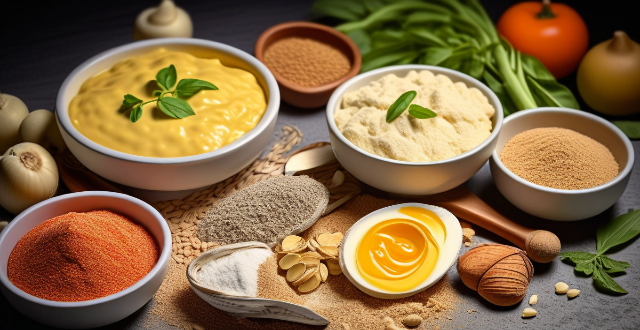
What are the key ingredients in Indian cooking ?
Indian cuisine is known for its rich flavors and diverse dishes. The key ingredients that make Indian cooking unique are spices, herbs, ghee, lentils, rice, yogurt, nuts and seeds, and bread. These ingredients add flavor, color, and aroma to the dishes and create authentic and delicious Indian cuisine.
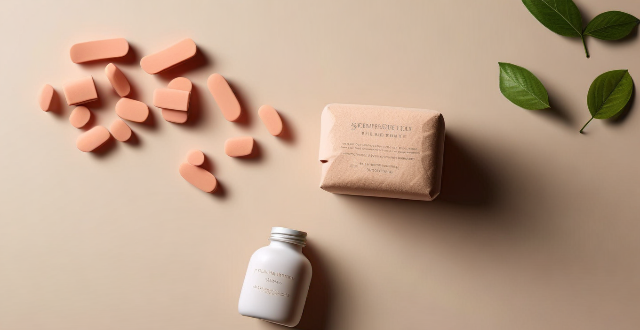
Can you suggest any affordable skincare products loved by celebrities ?
The article discusses affordable skincare products that are loved by celebrities, including Neutrogena Hydro Boost Water Gel, Cetaphil Gentle Skin Cleanser, The Ordinary Niacinamide 10% + Zinc 1%, and La Roche-Posay Effaclar Duo Acne Treatment. These products offer benefits such as intense hydration, gentle cleansing, reducing inflammation, and targeting acne without breaking the bank.
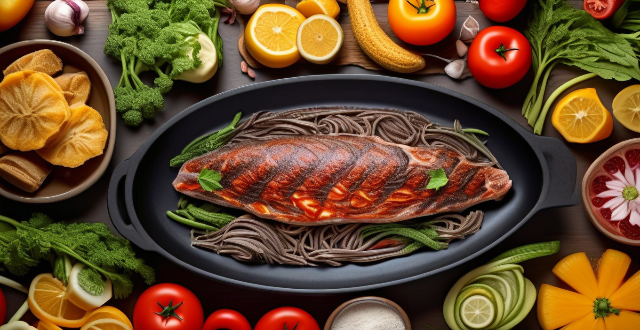
How does the use of chilies contribute to the distinctive taste of Mexican food ?
Chilies play a pivotal role in Mexican cuisine, contributing heat, flavor complexity, color, and cultural significance. They offer varying intensities of spiciness, from mild to very hot, and their fruity or earthy flavors complement other ingredients. Visually appealing with vibrant colors, chilies also have nutritional benefits like antioxidants and metabolism boost. They are versatile in cooking, used fresh, dried, or smoked, and pair well with acidic and herbal ingredients. Chilies are integral to traditional dishes like enchiladas and mole sauce, showcasing their essential role in defining the unique taste profile of Mexican food.

How do I know if a product is truly gluten-free ?
Gluten-free products are becoming increasingly popular, but it's important to know how to identify whether a product is truly gluten-free. Here are some tips: 1. Check the Label 2. Look for Certifications 3. Read the Ingredient List 4. Be Wary of Cross-Contamination 5. Trust Reputable Brands 6. Ask Questions

Can you recommend any Michelin-starred restaurants in Paris ?
Paris is home to several prestigious Michelin-starred restaurants. Among the recommendations are Le Grand Restaurant, L'Ambroisie, Alain Ducasse au Plaza Athénée, Guy Savoy, Le Pré Catelan, and Arpège, each offering unique dining experiences with dishes that showcase seasonal ingredients and impeccable techniques. Reservations are highly recommended due to high demand.
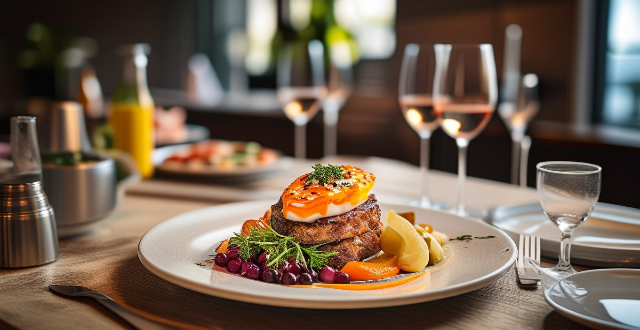
Are there any exclusive dining spots in Los Angeles that offer an exceptional culinary experience ?
Los Angeles boasts a variety of exclusive dining spots offering unique settings, innovative menus, and world-class service. From seafood at Providence to modernist cuisine at Vespertine, these restaurants cater to those seeking an exceptional culinary experience. Reservations are often necessary due to popularity and limited availability.

How do I choose eco-friendly cleaning products ?
This text provides a comprehensive guide on choosing eco-friendly cleaning products, emphasizing the importance of understanding eco-friendly labels, checking ingredient lists for harmful chemicals, opting for concentrated and reusable packaging options, supporting green brands, and considering homemade cleaners. By following these steps, consumers can make informed choices that contribute to a healthier planet and home environment.

Who is the current Ballon d'Or winner ?
The current Ballon d'Or winner is Karim Benzema. He won the prestigious award in 2022 for his exceptional performance during the year. About Karim Benzema: - Full Name: Karim Mostafa Benzema - Date of Birth: December 19, 1987 - Nationality: French - Position: Striker - Current Club: Real Madrid C.F. Career Achievements: - Club Career: Real Madrid C.F., multiple La Liga titles, Copa del Rey trophies, and UEFA Champions League titles - International Career: France National Team, FIFA World Cup, and UEFA European Championship - Ballon d'Or Awards: 2022, best male footballer of the year Key Moments in 2022: - La Liga: crucial player for Real Madrid - UEFA Champions League: vital role in Real Madrid's journey to the final, scoring crucial goals - FIFA World Cup Qualifiers: performances for the French national team helped secure their spot in the 2022 FIFA World Cup - Personal Accolades: numerous individual awards and nominations throughout the year.